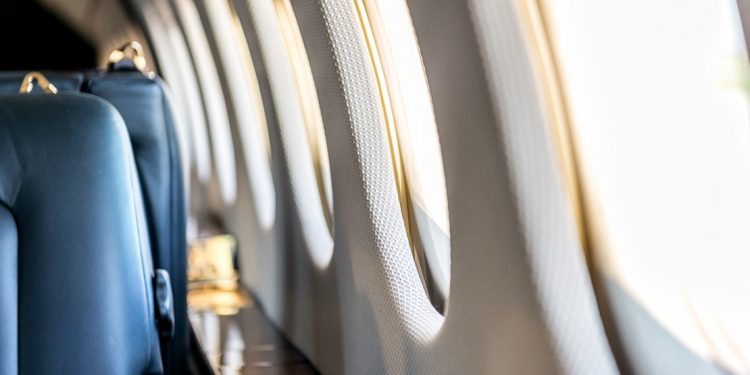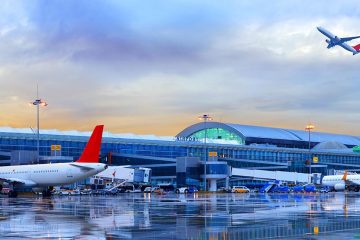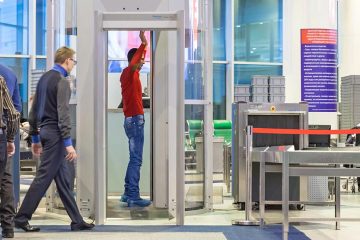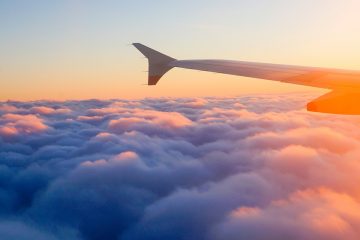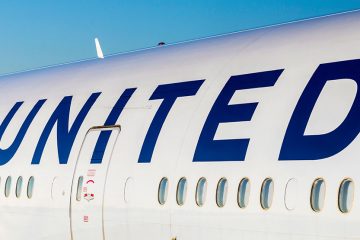Comfort and Convenience: How to Pick the Best Airplane Seats
What Are Your Preferences?
Although airlines would like you to think otherwise, flying isn’t always the most comfortable way to travel. Unless you are able to treat yourself to of the sumptuous luxury air travel options that are out there, you’re stuck flying economy class, which means you’ll have very few amenities at your disposal.
Most domestic airlines have dropped their food and beverage services in favor of bare minimum snacks and one to two free drinks per flight, if that. They’ve crammed more seats in to sell more tickets, nickel and dime you for everything including checked baggage (or sometimes carry-on baggage), and in some cases have eliminated in-flight entertainment all together since most people have their own electronic devices.
Some budget airlines have also taken to charging for seat assignments the way European railways do. Regardless of whether you have to pay for it or not, where you sit on an airplane can either contribute to your misery or make your flight a little more enjoyable.
In a sense, there’s an art to seat selection — one which websites such as SeatGuru have encouraged. Before you book your next trip, arm yourself with the best air travel hacks and take a minute to consider your seat assignment and where the best airplane seats are based on your preferences and situation.
Part of the Plane
Choosing what part of the plane you’d like to sit in is the first step to picking the right seat. When making your decision, consider what’s most important to you: legroom, noise, turbulence effect, seat reclination or bathroom accessibility. All of these are factors that make one section of the plane more desirable than another.
In general, the front of the plane has the quietest ride, the middle has less turbulence, and the back will be pretty hit or miss. Because the the back of a plane is less desirable, sometimes there will be empty seats, allowing you to stretch out across a row. You’ll also be closer to the bathrooms, which could be good or bad depending on your perspective.
For the most part, the front seats offer the best combination of considerations making it desirable for use as first or business classes. Seats in this part of the plane recline much more (in some cases all the way back), are wider, quieter, and offer perks such as power outlets, personalized flight attendant service, and better snacks, beverages, and entertainment access.
In-flight service generally starts at the front of the plane and moves back, meaning you’ll get snacks and drinks before others. Most airlines also offer priority boarding for first-class, business class and any other specialty seating.
Passengers in the front also deplane first and can get to their next flight or destination faster.
S.A.L.T. is a Silversea culinary cruise that will enable you to have authentic food experiences from a variety of cultures. Learn more here.
Exit Rows and Economy Plus
Besides splurging for first or business classes there are a few cheaper options available to aid in your comfort. A majority of airlines now offer a type of “economy plus” seating for an additional charge.
Usually located at the front of coach, these seats have four to eight extra inches of precious legroom, are wider, and in some cases come with faster boarding and free goodies on board. However, they’ll also cost you a bit more.
While budget airlines such as Allegiant and Spirit may only charge around $20 or so for these seats, Delta and United can charge upward of $100 extra per seat. Unless you’re super tall or have a disability that warrants the extra space, it might not be worth it to splurge.
There’s also the option of booking exit row seats for a little extra room, but doing so does come with some restrictions. Passengers seated in these rows must be over 15 years of age, not require a seat belt extension, speak the home language of the airlines, and be able to follow the instructions by a flight attendant, which may include lifting up to 50 pounds.
Even if you do qualify to sit there, these seats can sometimes get drafty and may not recline all the way back.
Window, Middle or Aisle
Once you’ve narrowed down the section and row you’d like to sit in, there’s the matter of choosing your seat number. Most standard commercial planes have a three-and-three, three-three-and three, or three-four-and-three seating arrangement.
There are of course smaller and larger planes with different variations, but these are the most common.
Aisle seats are always the most desirable since you can stretch your legs a little further without worrying about playing footsie with the person next to you. You also don’t have to climb over someone, but will sometimes get bumped by the service cart or people walking up and down the aisles.
The middle seats are usually the last to book when everything else has run out. Unless you know the person in the aisle seat, in can be awkward trying to climb over them when you have to use the bathroom or get up for whatever reason.
On more cramped airlines, those in the middle seat are usually the most squished making them undesirable for people with claustrophobia or anxiety.
Then there are the window seats, which some people swear by as the best seats on a plane. If you’re the type who loves taking photos out the window or gazing at the clouds, by all means choose a window seat. They’re also great when you want to sleep because you have something to lean against. (If you don’t have a window seat, here are some tips for how to sleep on a plane.)
But, again, like the middle seats, you will have to climb over people in order to get out.
Whichever seat you end up choosing on a flight, know that there are always instances of overbooking, which may allow you to actually give up your seat and get a better one on another flight.
Sometimes the seat next to you will remain empty, giving you extra room, or you may be asked to switch seats with people wishing to sit together. Above all, choose a seat (when you can) that suits your needs while flying, even if that means paying a little extra or bringing items along to help you remain comfortable throughout your flight.

